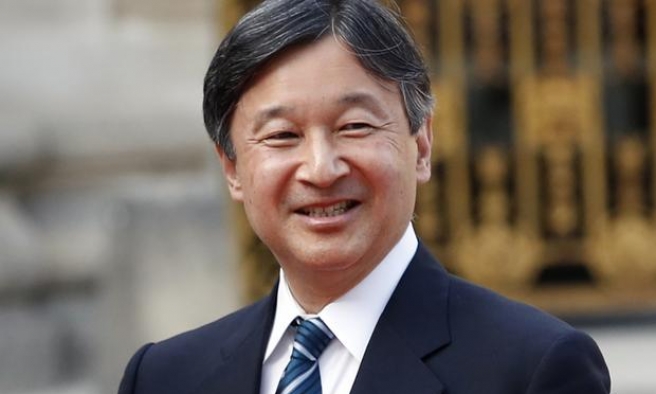 Emperor of Japan, Emperor Naruhito. (Image via DW)
Emperor of Japan, Emperor Naruhito. (Image via DW)
Emperor Naruhito's Enthronement Fiesta: About 550,000 criminals to be pardoned
To celebrate the enthronement of the successor of the Emperor Emeritus Akihito, Emperor Naruhito, which will be held next week, the Japanese government on Friday announced that it will pardon around 550,000 criminals sentenced for trivial charges.Chief Cabinet Secretary, Yoshihide Suga, said that the pardon would be the chance for the petty criminals to “reflect and rehabilitate”. From the 550,000 pardoned criminals, traffic violators made 65.2%, hit-and-run criminals made 17.4%, assaulters made 3.3%, and the thief made 2.6%.
Further details about the pardons are given by Kentaro Tanaka, an official from the Rehabilitation Bureau of the Ministry of Justice. These 550,000 criminals would be pardoned only if they committed petty crimes such as traffic violations, theft, and fraud. However, the condition is if these 550,000 criminals have paid their penalty at least three years ago.
Among the 550,000, there will be also criminals whose convictions are difficult to be carried on due to several circumstances such as health and financial difficulties. For those who have been charged to imprisonment or penal servitude, no amnesty will be given, nor will the sentence be reduced.
About 430 criminals due to breaching the election law are also expected to be pardoned. In 1993, such pardons were quipped as “politically motivated”.
Moreover, due to these penalties and charges, these criminals should wait five years for exams or for their national licenses. Fortunately, with the pardon, they are freed from the restrictions or at least, they don’t have to wait until five years for those. However, their criminal records remain.
About 700,000 individuals are feeling entitled to be pardoned. These special pardons are given for individuals who were fined within the last three years, or whose job prospects were tainted by the charges.
However, if they feel so, they need to submit their request to the public prosecutor’s office, and their requests will be scrutinized by the rehabilitation panel under the Justice Ministry. From that number, about 1,000 are expected to be granted amnesty.
The pardons are not the first in Japanese history. In 1989, about 10 million pardons were given to mourn for the passing away of Emperor Hirohito, or known as Emperor Showa. And the most recent was in 1990 when Emperor Akihito was enthroned as the Emperor of Japan. About 2.5 million criminals were pardoned. The number of pardons is reduced to avoid criticism.
Some politicians criticize these pardons are inappropriate if they are given amid a celebratory mood to enhance political “politically-motivated” benefits. A member of the Upper House and an opposition, Hiroyuki Nagahama, stated that the pardons are not transparent, especially without oversight by the judiciary.
Source: https://bit.ly/2J5E2Jd
 English
English Japan
Japan

vardenafil generic viagra street price per pill walgreens online shopping natural viagra boost samples for healthcare professionals cvs fill prescription online
iv prednisone prednisone corticosteroids taking prednisone for 10 days what does prednisone look like
furosemide steroid furosemide 160mg daily furosemide target response urine output how fast does furosemide work
best 3d sex games mobile adult sex games sex naked games
azithromycin near me zithromax buy azithromycin 500 mg buy online how long does azithromycin take to work
neurontin 300mg capsule does neurontin cause decreased libido how long does gabapentin stay in urine
xopenex vs albuterol how to stop albuterol shakes what is albuterol made of
what causes low libido in men fentanyl pill blue 30 m viagra online kaufen average cost of generic viagra free stuff for health fairs sildenafil citrate cenforce 100 cheap viagra prescription generic viagra in usa store how much cialis should i take viagra cheap online reasons why viagra stops working best websites for generic viagra order prescription viagra online male enhancement before and after teva sildenafil for sale usa buy prescription drugs without doctor cheap online viagra walmart male enhancement pills best fitness supplements for women does sildenafil 20 mg work online viagra cheap goodrx corporate office how long does viagra last sildenafil 20 mg vs viagra order viagra pills online kroger drug prices dr oz viagra alternative predoxen walgreens pfizer direct viagra viagras women viagra pink pill free birthday printable coupons
plaquenil drug plaquenil 200mg price why eould plaquenil help lower bp what will happen if i stop taking plaquenil
buy lasix online lasix pills 20 mg lasix iv to po conversion to which of the following pharmacologic classes does furosemide belong
generic zithromax azithromycin 500mg coupon can you take zithromax and amoxicillin together how to reduce side effects of azithromycin
flomax and erectile dysfunction how long can you keep viagra pills cialis and cancer risk viagra government funded generic substitute for viagra cost of viagra 100mg cvs
tylenol and prednisone prednisone price poison ivy rebound after prednisone how long does prednisone affect blood sugar
ivermectin reaction stromectol usa ivermectin dosage chart for humans how to use pour on ivermectin on dogs
alternatives to albuterol albuterol inhaler price albuterol so4 0.083% inhl 3ml how many puffs in a ventolin hfa inhaler
provigil brain fog what is modafinil 200 mg used for top class action provigil tennessee how long after taking modafinil can i take adderall
best website for viagra best female libido enhancer products purchasing viagra in the usa viagras supplement to increase women's libido pharmacy discount card top libido boosters for men
amoxicillin strep throat generic amoxicillin online dosage of amoxil for strep throat amoxicillin during pregnancy
neurontin medication neurontin 100 mg caps (neurontin, gralise, horizant how long does it take for gabapentin to get out of your system
can marijuana cause erectile dysfunction cost of cialis in india price of cialis at walgreens viagra no prescription over the counter erectile dysfunction pills levitra headache